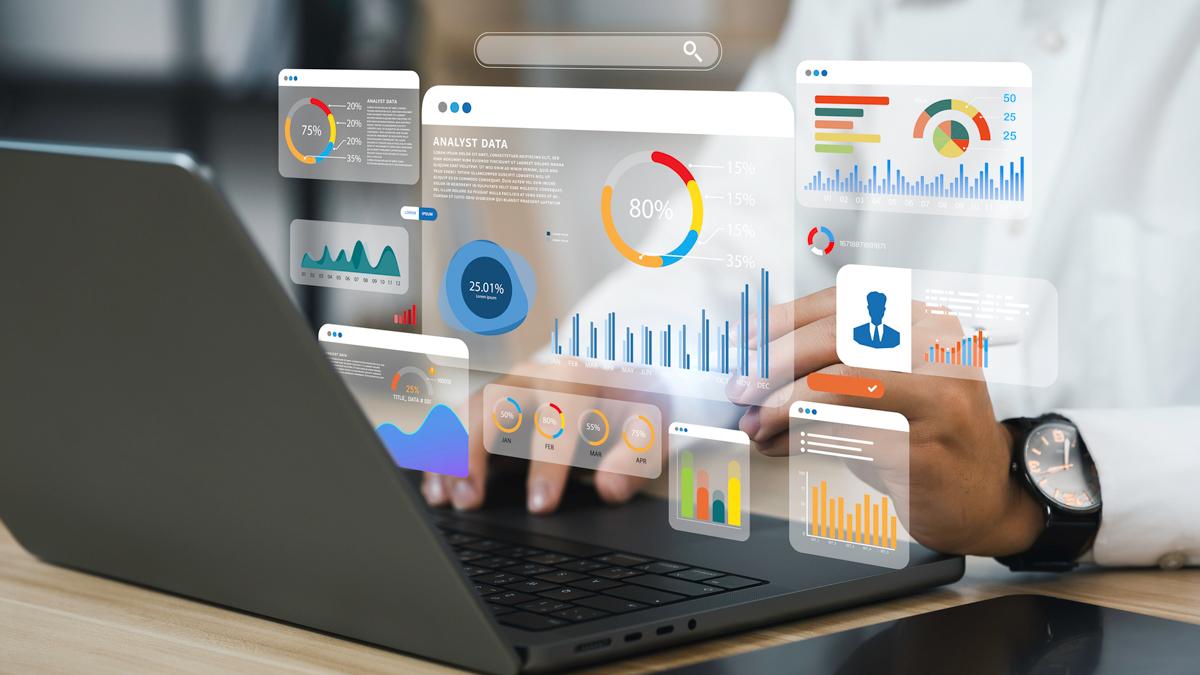HCP marketing’s Pharma 4.0 moment: Leveraging AI for real-time campaign optimisation

With healthcare marketing becoming more digital than ever, artificial intelligence (AI) for marketers has ceased to be merely a buzzword. Instead, it has emerged as a gamechanger, increasingly intertwined with digital healthcare marketing operations.
The growing use of AI has opened new avenues for healthcare marketers, revolutionising how they approach new initiatives. With the Pharma 4.0 term representing the pharmaceutical industry's adaptation of Industry 4.0, which refers to the fourth industrial revolution driven by digital technologies —AI takes centre stage in this transformation.
The primary reason AI is proving to be such a gamechanger for healthcare marketing is that it arguably stands to gain the most from modern technologies. At its core, marketing in healthcare revolves around understanding the needs of healthcare professionals (HCPs) and patients and aligning them with the right product at the right time to fulfill those needs.
Extrapolated across a large target audience, this task can become tedious and time-consuming if done manually. However, with AI-based tools—capable of processing troves of rich data in seconds—marketers can reach tens of thousands of HCPs and patients almost instantaneously with products that precisely match their needs. Yet, as any marketer would attest, designing a campaign to reach target audiences is only one piece of the puzzle. The more complex challenge lies in ensuring the campaign remains optimised throughout its lifecycle to achieve its full potential. This is where AI plays a pivotal role.
Leveraging AI for real-time campaign optimisation
The ability of AI-based solutions to make complex, data-driven decisions in real-time enables marketers to do more than simply hyper-personalise their campaigns for their audiences. By leveraging AI to optimise campaigns, marketers can significantly enhance the efficiency of their efforts. As a technology, AI facilitates real-time adjustments to long-running campaigns, ensuring they consistently perform at their best.
One way AI-based tools support real-time campaign optimisation is by continuously analysing engagement data to identify trends, patterns, and audience behaviours. This allows marketers to fine-tune their strategies on the fly with the assistance of competent AI tools.
Much of this is possible because of the high level of responsiveness AI tools offer, ensuring that healthcare marketing campaigns remain aligned with the evolving needs of HCPs and their patients. Since AI is also employed in the message delivery process—especially in point-of-care messaging strategies—marketers can deliver highly tailored messages to the right HCPs at critical moments in the clinical delivery cycle. This leads to more effective engagement from HCPs.
While this process might sound straightforward, it is far from it. To maintain fresh and relevant messaging, AI-based tools must exhibit a high degree of human-like adaptability at scale. Attempting to achieve this using traditional marketing techniques is destined to fail, as these methods rely on static, one-size-fits-all approaches.
Furthermore, AI’s ability to enable marketers to fine-tune messaging based on real-time feedback ensures that every interaction with an HCP or patient feels fresh, timely, and customised to their needs. Marketers have constant access to campaign results and up-to-date feedback on crucial elements such as creatives and target audience responses, which can then be used to make real-time changes to enhance performance. In my experience, generative AI can also reduce content creation timelines from weeks to hours. Tools like Adobe Firefly, OpenAI’s DALL-E, and generative AI-enabled platforms such as Figma and Canva are making this capability more accessible than ever.
The data collected provides insights not only into the messaging and design of the campaign, but also into delivery elements such as the channels used for dissemination. This invaluable data enables marketers to make quick decisions about whether to continue spending on a particular channel or pivot to another to achieve better results.
Generative AI can also enrich customer profiles by uncovering preferences and intent from real-time behaviours, such as browsing history, published papers, and activity on doctor networking platforms. Unlike traditional automation, which processes structured data, generative AI unlocks unstructured data—analysing images or detecting sentiment in customer call transcripts. It can identify emotions and behaviours such as “frustrated by assembly process” based on a customer service call or “preference for sustainable products” inferred from engagement with an advert on a medical journal page.
Thus, by assessing campaign success and implementing changes in real-time, rather than waiting until the end of a campaign, AI helps marketers maximise efficiency and impact. This approach not only minimises financial wastage—a common pain point for most marketers—but also saves considerable time that would otherwise be spent on course correction.
Another lesser-known benefit of using AI-assisted, real-time optimised campaigns over traditional methods is their ability to leave a more positive long-term impact on their target audience. By delivering the right messaging to HCPs and patients at critical moments in the healthcare delivery cycle, AI-based tools contribute to improved patient outcomes. Over time, this fosters stronger, more engaging relationships between pharma brands and HCPs, who are ultimately working towards providing value-based care to their patients. This deepening of relationships can prove mutually beneficial, driving long-term success and sustained business growth for the brand.
However, marketing leaders should tread carefully. The allure of AI can lead many to focus on building complex martech stacks before defining their true goals. The smarter approach? Identify high-impact opportunities and adopt a “learn fast, scale faster” mindset.
In 2025, staying ahead of the curve isn’t just about using AI—it’s about using it with purpose. With HCP and patient needs constantly evolving, AI’s ability to adapt on the fly and provide detailed, data-backed suggestions for improving campaigns can make the difference between the success and failure of not only individual campaigns but, over time, entire businesses.











